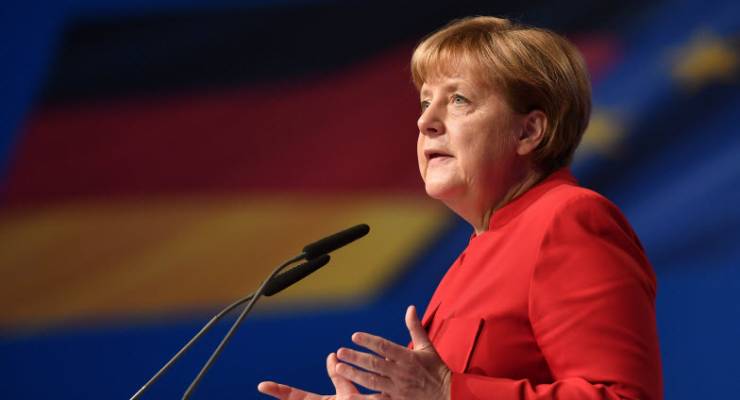
Ardent handshakers they’ve been, the populists. They’ve been science-deniers, ludicrous optimists, and reckless blamers — all cultivating denial amid social media misinformation and wildly circulating conspiracy theories.
The worst offenders? Presidents Trump (US), Bolsonaro (Brazil) and Obrador (Mexico). The result? Delays in taking the steps that needed to be taken, like social distancing, which may well have cost lives.
Instead of adopting global, regional, even clear national approaches, the world’s populist leaders and demagogues are claiming that the answer to future COVID-19 control is wrapped up in heavy-handed leadership; tight controls on immigration; and defensive, trade-annihilating de-globalisation.
Obviously a better way is to look at those democracies where strategies for containing — for resisting — COVID-19 appear to be working. These include Singapore, Taiwan, Korea, Australia and New Zealand. The numbers of deaths and infections here are a mere fraction of what densely populated Europe plus the US are having to claw their way through.
Despite being extremely vulnerable due to its ageing population and location, Germany has also suffered a low number of deaths compared to its neighbours. This is despite registering 157,770 infections so far. With Italy’s COVID-19 hub virtually at Germany’s doorstep and the cluster in eastern France a two-hour drive from Stuttgart (which, like Munich, has taken French and Italian intensive care patients), Germany is today mourning 5976 deaths.
It sounds like a lot, and it is. But the cold reality is that losses nearby are far higher: Italy 26,644; France, 22,890; Spain 23,190; the UK, 20,794. On April 17, with the virus’ reproductive rate at 0.7 — meaning a carrier infects less than one person — the German Health Minister Jens Spahn announced that the disease was “controllable”. Lockdown provisions began to be tentatively relaxed last week.
Before the pandemic, it had become almost de rigueur among many policy analysts to argue that Germany had become, in the words of one prominent French commentator, “introverted” and “antiquated” in its political and administrative slowness. This is despite taking more than 1 million refugees in 2015-16, putting about 350,000 of them into school and about the same number finding work.
Europe’s largest economy had fallen asleep at the wheel, it was held; the complicated federal system was in party-political log-jam, while big picture Paris-sponsored plans for the future of the European Union went largely ignored in Berlin.
But, in fact, it’s been other EU member states — heavily indebted — that now look like they were unprepared pre-crisis and slow to action after its onset. At issue is not only the health of national healthcare systems, but the topography of government priorities and perspectives.
According to the OECD, Germany had almost three times as many acute care beds per 1000 population as Britain before the pandemic. This is nearly twice as many as France — thousands of which are still available.
In fact, since the start of the crisis, at least 10,000 ventilators have been added to national reserves. Germany, still with a strong industrial base, has more beds with breathing machines than any other country, according to Jens Spahn. Since the first week of April, the number of COVID-19 infections has declined by about 40%; daily new cases by about 70%.
Also paramount, is that Germany has tested faster and more widely than anywhere else in Europe. With a dense tissue of university and private laboratories, as well as hospitals and government agencies, Germany went from 7000 daily COVID-19 tests at the start of March to 100,000 tests a day at the end of the month. That’s a 14-fold increase.
Perhaps most astonishing, however, was the speed with which the national parliament passed a supplementary budget and loans scheme for stricken companies worth up to €750 billion. So much for the convention of low-level state intervention in the economy.
To an extent, every nation’s situation is unique. There are complex cultural reasons why Italy, France, Spain, and now the UK are so desperately struggling to cope with COVID-19.
But today it looks like Germany’s much-maligned “schwarze Null”, or black zero (a constitutional commitment towards balancing budgets) has not resulted in a poorly-funded healthcare system. That is, it has not resulted in neoliberal austerity in the demonic, black-hearted sense.
However, this crisis is not over. The German authorities, from Chancellor Angela Merkel down, have gone out of their way to be prudent, saying that hospitals could still be stretched in the weeks ahead. The martial language that politicians usually love is expressly avoided here.
But policymakers across the West are going to need to park their egos when the nightmare is over. They will need to pragmatically address the strategies that worked, to what extent and why.
Could COVID-19 be foreseen? Possibly not. But which countries were ready beforehand and what did governments and health systems do after the point at which the course of the virus became foreseeable?
And then? Then, cooperation. That we “hear the music”, to quote French observer, Eric Le Boucher. The pandemic has made ruthlessly clear that international cooperation is not only imperative, but probably the only way forward — on health, on climate change, on our digital future.
Democrats of all stripes will need to fill the vacuum before the populists pile in. Because pile in they will.
Richard Ogier is an Australian journalist and consultant based in Munich.








Covid spread to most of Europe including Italy via Germany. To call them a success is extremely arrogant. Just as Germany’s economic relationship to Europe is analogous to China’s to the world so is Germany’s response to COVID. They should be praised for how they dealt with the virus after letting it wreck the rest of the continent?
Populism has to me long been shorthand for incompetence and a lack of practical ideas. Our populist contagion is more limited but still quite damaging. Clive swung the critical few seats last election. Barnaby – water and… where does one start ? Pauline. Has she ever done anything that doesn’t essentially revolve around her ?
Eric Le Boucher – any relation lol ?
France has a far longer, stronger belief in total central control of government & society than any other democratic country yet has been shown to be wanting.
After their distressing interregnum early last century Germany has become almost the prefect amalgam of strong leadership and total democracy.
Irony bites.
Meanwhile the neolib austerity porn anglophone UK & USA have been truly abysmal but that is not a fault but a feature of their MO.
How to explain the huge popularity of the Tories and Johnson in the UK?
Good piece. All I’d add is the true UK figures are likely 30-50% higher than current Government reporting (the figures quoted here) would have us believe. And the arch Nationalist Putin, he’s remarkably quiet.
Like in most states governments exaggerate the danger of COVID-19!
The latest study proves it.
https://www.ukbonn.de/C12582D3002FD21D/vwLookupDownloads/Streeck_et_al_Infection_fatality_rate_of_SARS_CoV_2_infection2.pdf/$FILE/Streeck_et_al_Infection_fatality_rate_of_SARS_CoV_2_infection2.pdf